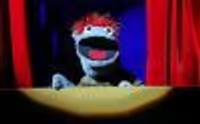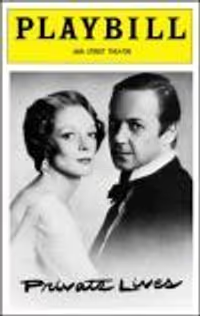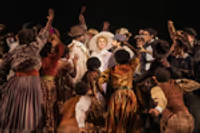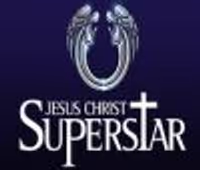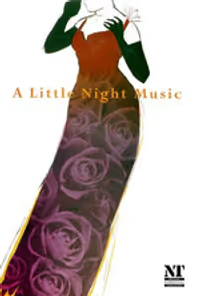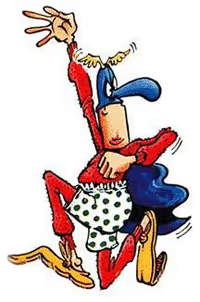Question to all the pianists out there: What was the hardest Broadway piece you've encountered?
#25Question to all the pianists out there: What was the hardest Broadway piece you've encountered?
Posted: 9/23/12 at 3:36pmFranklin Shepard Inc. is a brilliant song, but played solely on the piano, it barely sounds like music.
#26Question to all the pianists out there: What was the hardest Broadway piece you've encountered?
Posted: 9/23/12 at 3:43pm
I don't find Piazza difficult, you just have to get used to amount of dissonance he uses.
That's not it at all, since most of that score is fairly consonant--in fact, it's easy to fake because a lot of it is just hyper-complex arpeggios. But if you want to play it as written, you have to get used to the fact that Guettel writes for the piano like a cross between a guitar and a two-handed percussion instrument.
I just chose a page at random from the beginning of the score:
http://s10.postimage.org/9ysepke5l/LIP2.png
The four measures before it are in 4/4 and every other beat alternates between sixteenth sextuplets and quintuplets with stretches of a major tenth in both the left and right hands simultaneously and odd accents in the left hand. Rachmaninoff weeps.
edit: trouble attaching the image; even BWW doesn't know how to handle that score!
Updated On: 9/23/12 at 03:43 PM
#27Question to all the pianists out there: What was the hardest Broadway piece you've encountered?
Posted: 9/23/12 at 3:50pm
I play from the vocal selections which is probably arranged to be less difficult (your link isn't working, btw).
Either way, I honestly don't find it all that difficult. But I also go in very familiar with the score from the recording so I expect those odd accents.
ETA: I just went and played the version of The Beauty Is from the vocal selections and it is pretty advanced.
#28Question to all the pianists out there: What was the hardest Broadway piece you've encountered?
Posted: 9/23/12 at 6:14pmGodspell's All for the Best can be difficult
JohnyBroadway
Broadway Legend Joined: 4/10/12
#29Question to all the pianists out there: What was the hardest Broadway piece you've encountered?
Posted: 9/23/12 at 6:32pmSo is Alas, Alas.
#30Question to all the pianists out there: What was the hardest Broadway piece you've encountered?
Posted: 9/24/12 at 12:26amAre Sondheim and Guettel really all that more hard to play (and/or sightread) than Blitzstein, Weill or Bernstein? Asking seriously, I had several years of piano but it has been years since I touched a keyboard. Didn't all theses artists write complex scores whose difficulty were masked for the average listener by their tunefulness?
#31Question to all the pianists out there: What was the hardest Broadway piece you've encountered?
Posted: 9/24/12 at 6:23am
I was able to finally see your link, hyperbole.
Yea, that does look tricky. Also, the vocal selections always have much larger and cleaner engravings which also makes a difference.
leefowler
Broadway Star Joined: 7/13/04
#32Question to all the pianists out there: What was the hardest Broadway piece you've encountered?
Posted: 9/24/12 at 7:26amJason Robert Brown's "Last 5 Years" has some of the most difficult piano arrangements I've ever seen, although I'm guessing most pianists don't play them as written.
#33Question to all the pianists out there: What was the hardest Broadway piece you've encountered?
Posted: 9/24/12 at 8:06amNo Good Deed really gave me trouble. I can't make it all the way through with out screwing up. A lot of times I don't even play it as written. I improvise chords that I think would work, and hope that it sounds OK. There are just some notes that fly so quickly it's hard to keep track of where you are on the sheet music.
leefowler
Broadway Star Joined: 7/13/04
#34Question to all the pianists out there: What was the hardest Broadway piece you've encountered?
Posted: 9/24/12 at 9:48am
Another distinction that should be made is whether or not the pianist is playing from a published piano/vocal score or a manuscript piano/conductor score.
When I used to play piano for auditions (a looong time ago) "Meadowlark" and "Proud Lady" from Baker's Wife were popular audition pieces, but neither one was published. People would bring in copies of the piano/conductor, which were insanely complicated. You'd have to improvise a piano part out of a reduced orchestration. Not to mention that people would often bring in what looked like a 10th generation Xerox of the score.
#35Question to all the pianists out there: What was the hardest Broadway piece you've encountered?
Posted: 9/24/12 at 10:26am
I find Sondheim easily workable, even the finger-busters like "Another Hundred People." His figurations always make sense and serve the song.
Composers who I think of as "lesser" can be harder to play, because they often tend to throw in lots and lots of "extra" notes (doubling, hyperactive sixteenth runs, unnecessarily notated pop syncopation), in what seems to be an attempt to hide the elementary and essentially thin nature of the music (offenders: JR Brown, La Chiusa, Wildhorn, Schwartz, Shire).
#36Question to all the pianists out there: What was the hardest Broadway piece you've encountered?
Posted: 9/24/12 at 10:45am
No Good Deed really gave me trouble. I can't make it all the way through with out screwing up. A lot of times I don't even play it as written. I improvise chords that I think would work, and hope that it sounds OK. There are just some notes that fly so quickly it's hard to keep track of where you are on the sheet music.
No Good Deed is a bitch to learn, but it sounds great once you get it down. Same with As Long As You're Mine.
sweeneytodd2
Featured Actor Joined: 10/28/04
#37Question to all the pianists out there: What was the hardest Broadway piece you've encountered?
Posted: 9/24/12 at 12:42pm
I'm also going to disagree that theatre pianists have to come from a classical background. Contemporary musical theater calls on many styles of music, and the ability to switch between them like a chameleon is what's most important for a pianist. As long as there is a baseline proficiency in playing and sight reading, a classically trained player is no more equipped to play a swing number than a jazz pianist is equipped to play a "legit" piece. And to be honest, theatre music has enough of its own quirks and idiosyncrasies to make it its own distinct skill.
Also, I find piano reductions from shows orchestrated by Doug Besterman are always challenging. "Sister Act" and "Seussical!" are deceptively hard to play!
Updated On: 9/24/12 at 12:42 PM
#38Question to all the pianists out there: What was the hardest Broadway piece you've encountered?
Posted: 9/24/12 at 1:13pmIf one looks at the piano/conductor score for Tanz der Vampire (German version), one discovers that someone must have just written down the piano part the way Jim Steinman used to play before his stroke. Fingers and even hands are often on top of each other for one note, never mind a bar or a phrase.
Broadway Legend
joined: 5/1/05
Blocked: After Eight, suestorm, david_fick, emlodik, lovebwy, Dave28282, joevitus, BorisTomashevsky, Seb28
thevolleyballer
Broadway Legend Joined: 9/29/04
#39Question to all the pianists out there: What was the hardest Broadway piece you've encountered?
Posted: 9/24/12 at 1:32pmAs a non-pianist, this is a fascinating thread.
peerrjb
Featured Actor Joined: 7/7/09
#40Question to all the pianists out there: What was the hardest Broadway piece you've encountered?
Posted: 9/24/12 at 1:36pm
Two of the most difficult overall shows I've had to play: SIDE BY SIDE BY SIDE (Piano #2) made me weep while learning it. The score is basically a two-piano takedown of the various songs from the original orchestrations, so figuring out which part of the orchestration which hand was covering was ... sigh. The other was when I did a two-piano takedown of TINTYPES: the ragtime elements were tough enough, but keeping up with the subtleties of the diverse styles (music from 1888 to 191![]() was equally tricky.
was equally tricky.
I also remember, at a party when I was 20, being handed "Glitter and Be Gay" and having to sight-read it for a (now) well-known NY Tony-Winner. She was fun and gracious (she was my age, after all) but my playing didn't glitter and it wasn't even remotely jolly. (Think Jonathan Edwards Plays "Candide", if you know that reference, and you'll get the idea!!!!)
leefowler
Broadway Star Joined: 7/13/04
#41Question to all the pianists out there: What was the hardest Broadway piece you've encountered?
Posted: 9/24/12 at 1:38pmOrchestrators generally don't arrange their own piano reductions, so don't blame Doug Besterman!
#42Question to all the pianists out there: What was the hardest Broadway piece you've encountered?
Posted: 9/24/12 at 3:28pm
To take break from bitching about the incessantly complicated, another composer that is on my "Oh Dear" list is Bill Finn. 99.3% of the music is not hard (it's usually just quarter note pounds with easy rock bass lines--literally sub-Wildhorn beginner piano), so you'll sort of relax as you're playing it, but then out of nowhere, around a page turn, comes something completely unexpected that trips you up. And as I sit down to play his work, I always say "I will focus on the music in front of me and not be caught off guard," but I never succeed, because playing his music is like driving through the Mojave desert all night: impossible to stay alert because you get tunnel vision and your mind starts to wander. Once I've more or less memorized a score, it ceases to be a problem, though, and I use those little atypical oases as a way to keep track of where we are.
Also he writes in a lot of sharp keys, and writes in C major/A minor a lot. As someone who plays a lot of show and jazz music but not as much classical since school, sharp keys take some adjusting (a lot of show and jazz music is written in flats because it's going to be scored for brass/woodwinds, which are usually B-flat, A-flat or E-flat transposing instruments), but is manageable. I really dislike playing in C major/A minor however--my hands aren't shaped for it and my fingers are too long--but Bill Finn loves it. It felt like half of 25th Annual...Bee and especially New Brain was written in C major.
#43Question to all the pianists out there: What was the hardest Broadway piece you've encountered?
Posted: 9/24/12 at 4:52pm
Oh god yes. I absolutely love William Finn's work, in fact it's some of my favorite.
And I love to play it, but everything you just said is exactly right.
And it isn't helped by the fact that his songs are long. Hitchhiking Across America is close to 20 pages.
#44Question to all the pianists out there: What was the hardest Broadway piece you've encountered?
Posted: 10/13/13 at 12:16ambumping this. anyone have any more? specifically more kander and ebb-present, excluding sondheim and guettel
Pawnee Bill
Swing Joined: 10/13/13
#45Question to all the pianists out there: What was the hardest Broadway piece you've encountered?
Posted: 10/14/13 at 12:15am
I agree that piano-conductor scores and vocal scores are harder in general than single sheets. The latter are specifically designed to accommodate the average pianist, while the full-show scores try to assimilate all the major lines in the pit orchestra parts. I used to play shows in college, and some of the scores from Tams-Witmark and the like gave you enough material for three or four hands, at that in manuscript.
That said, though, I think that the more recent composers are more contrapuntal and syncopated than composers used to be. Oddly, Sondheim is but his scores are very playable, as long as you're been fully trained. But some of LaChiusa and Brown is quite tricky. "Way Back To Paradise" is a wonderful number, and though the accompaniment doesn't have a lot of notes per se, both hands are syncopated at the same time, making it difficult to get exactly right. I wouldn't bring it to an audition, even given that most pianists know how to fake their way through the difficult measures.
#48Question to all the pianists out there: What was the hardest Broadway piece you've encountered?
Posted: 10/14/13 at 3:08amJust One Step or King of the World from Songs for a New World. A lot of practice needed.
Irrational Number
Chorus Member Joined: 8/15/04
#49Question to all the pianists out there: What was the hardest Broadway piece you've encountered?
Posted: 10/14/13 at 3:17am
At auditions, "Trouble in Tahiti".
In rehearsal, "Into the Woods", battle pieces in Les Mis
Commercial vocal selections, none really.
#50Question to all the pianists out there: What was the hardest Broadway piece you've encountered?
Posted: 10/14/13 at 12:47pmThough it may not be the most difficult, the piano part to By Threes from I Love My Wife by Coleman is a glorious spotlight for the pianist in the show. The piano break is reminiscent of Gershwin. I marvel every time I listen to the recording.
#51Question to all the pianists out there: What was the hardest Broadway piece you've encountered?
Posted: 10/14/13 at 5:43pmMan, this thread makes me miss piano playing. I never got through all of the songs in my copy of Wicked; "Popular" and "I Couldn't Be Happier" were the easiest for me. Les Miz was pretty fun, too.
Videos


